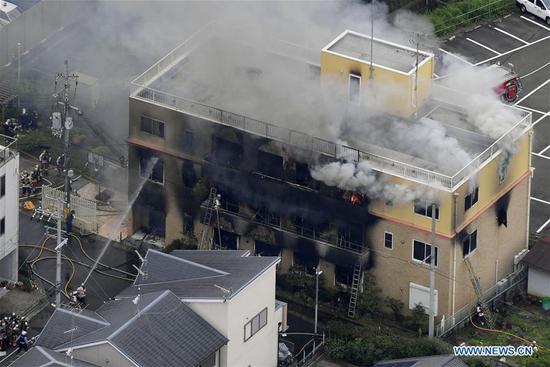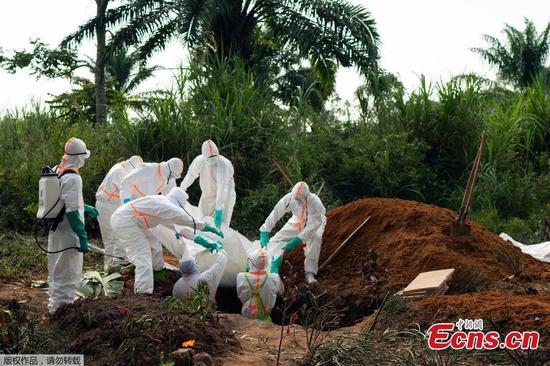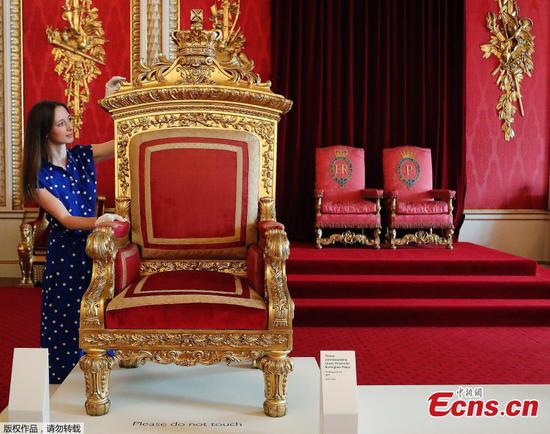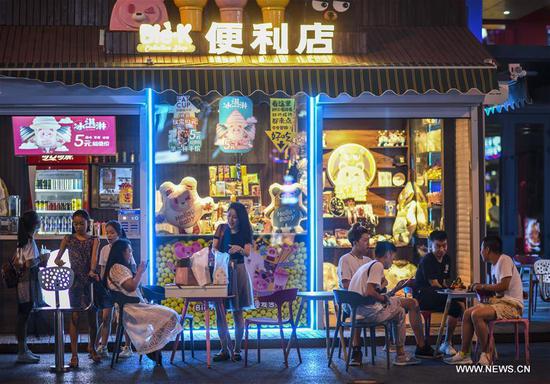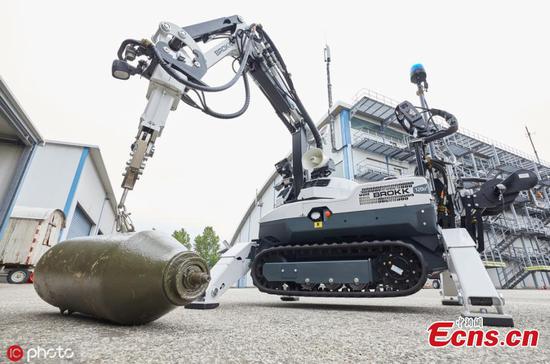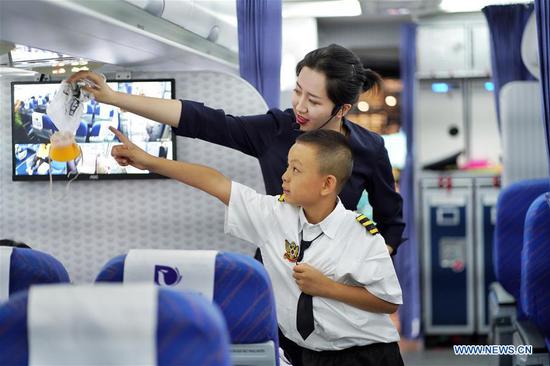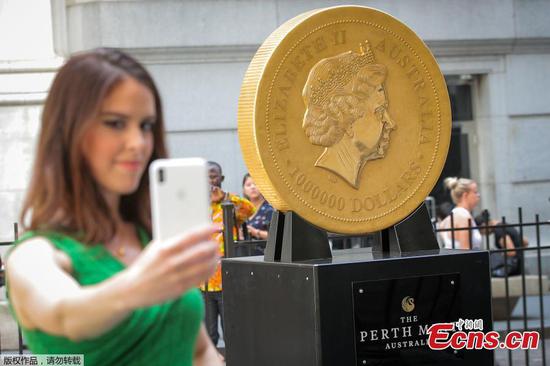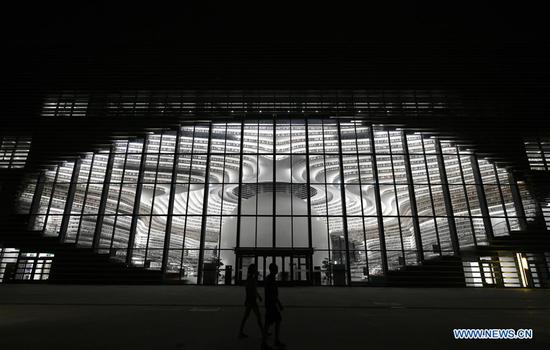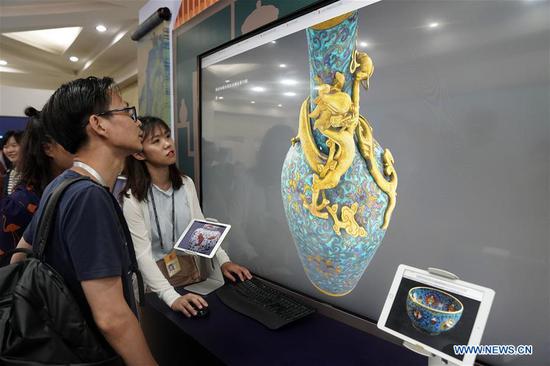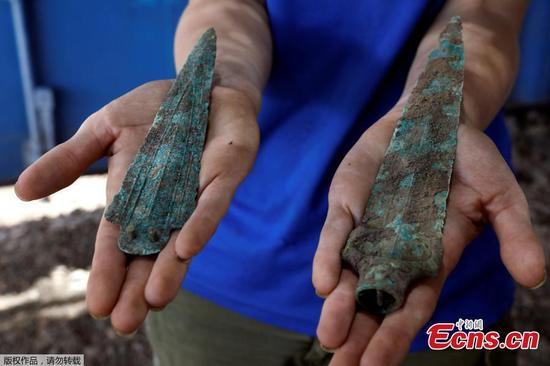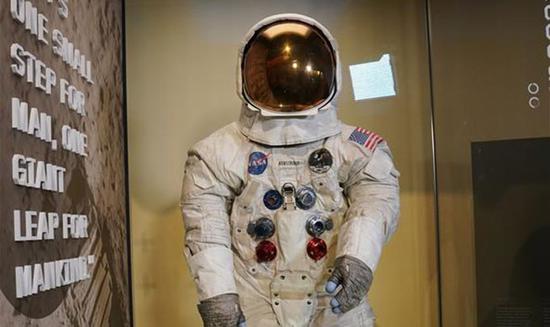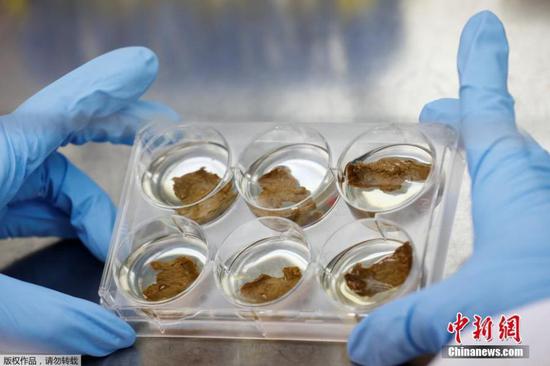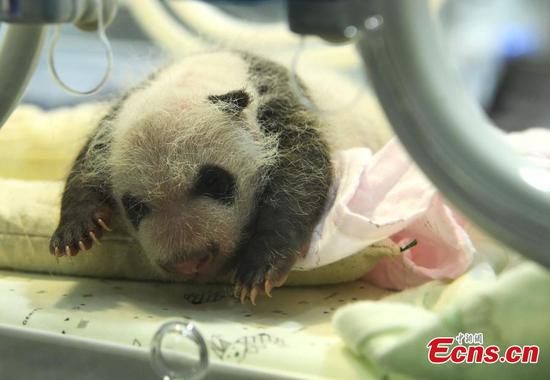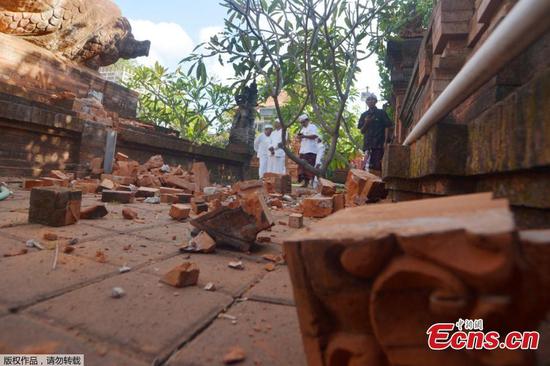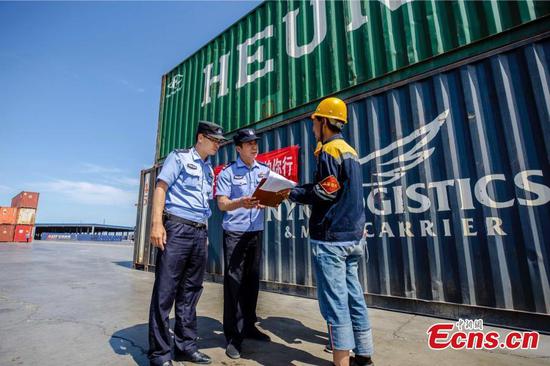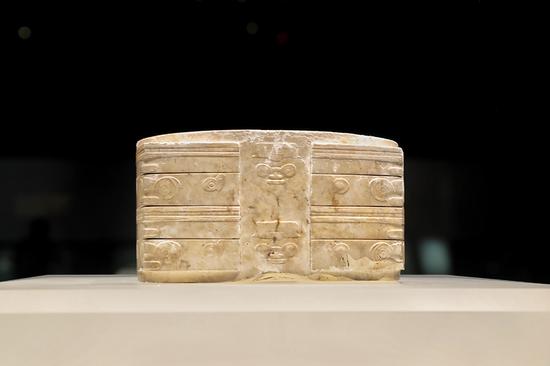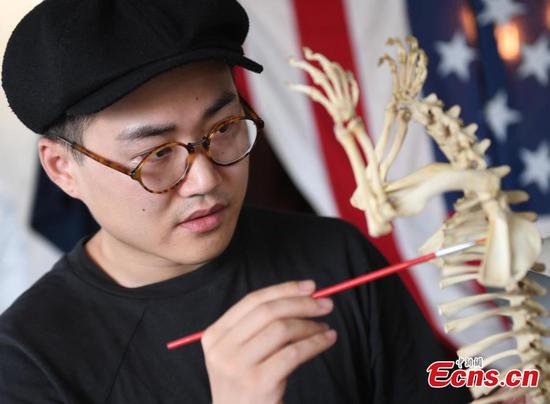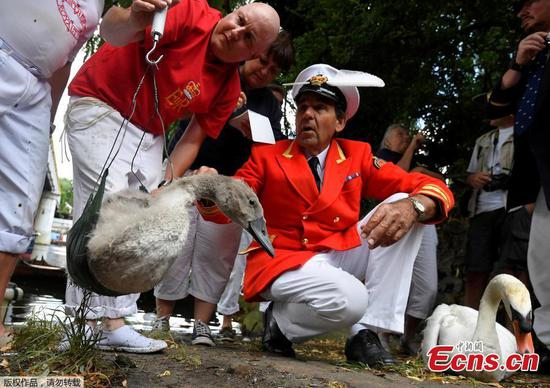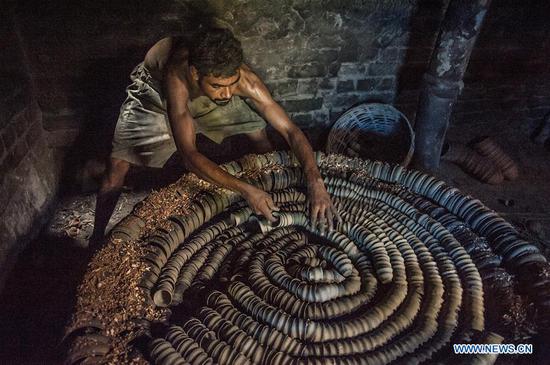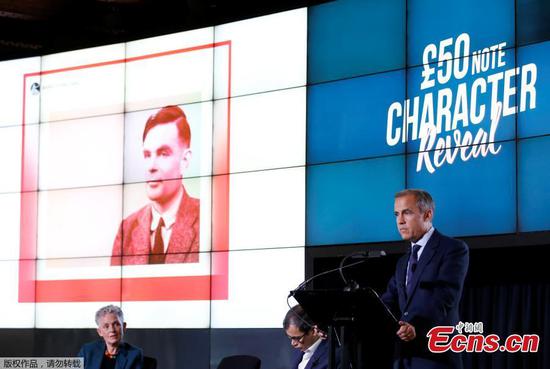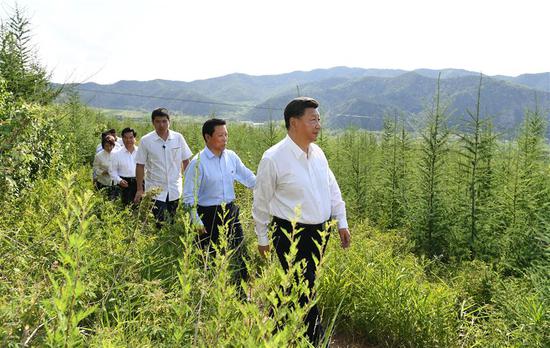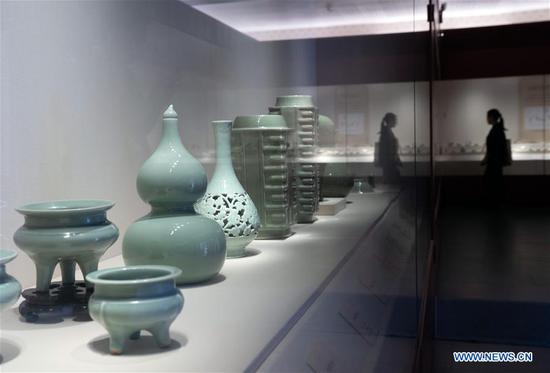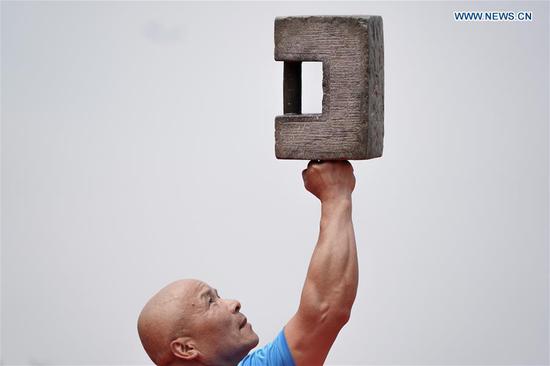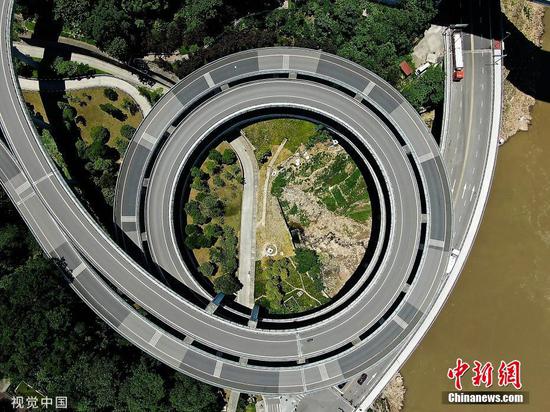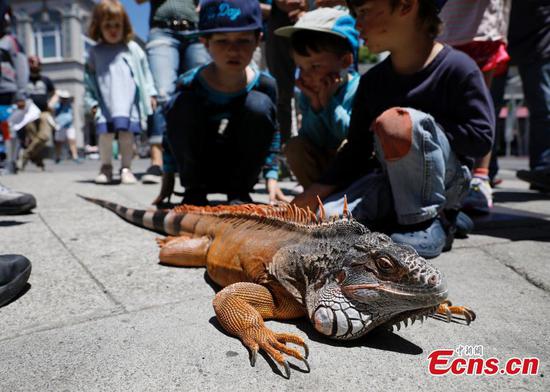
Nanchang Mayor Liu Jianyang (center) receives Founder's Award of U.S.-China Endowment for Citizen Exchanges from Sister City International (SCI) China Representative Fan Bo along with Xie Yuan, VP of CPAFFC (2nd from right) while SCI board member from Fort Worth, TX Mike Hyatt (left) and SCI vice chair Carol Lopez look on. (Photo by MAY ZHOU/ CHINA DAILY)
With desires to deepen local-level China-U.S. ties and to broaden bilateral cooperation echoed among Chinese and U.S. city leaders, business community members, and diplomats as hundreds of them gathered in Houston on Wednesday for the fourth U.S.-China Sister Cities Mayors' Summit.
Participants in the summit, which was themed "cities mean business", look to "strengthen economic and cultural ties drawing on local development and leveraging networks across China and the U.S.," said Ron Nirenberg, mayor of San Antonio, Texas, and chairman of Sister Cities International, the U.S. organization that co-hosted the summit, in his opening remarks.
Xie Yuan, vice-president of the Chinese People's Association for Friendship with Foreign Countries, the other co-host of the summit, said in his remarks that the summit serves as a platform for further development of sister cities and pragmatic cooperation between the local governments of the two countries.
"Subnational cooperation and people-to-people exchanges are the highlights in the history of China-U.S. interactions and a driving force for the growth of our relations," said Cui Tiankai, China's ambassador to the U.S., in a message sent to the summit.
The 277 pairs of sister friendships on both the state and city level between China as the U.S. — 227 pairs of sister cities and 50 pairs of sister states — have led to win-win cooperation as both sides share resources and complement each other's strengths, he said.
More than 100 municipal representatives traveled from China to join their U.S. counterparts from over 20 cities in the one-day summit, as the two sides engaged in broad-ranging discussions on topics including innovation and smart cities, the Maritime Silk Road, metroplex collaboration and educational exchanges, and how to energize and engage existing and prospective sister cities.
Carol Lopez, vice-chair of Sister Cities International, said the turnout, which exceeded her expectations, showed that people from China and the U.S. "care very much about our friendship and cooperating and working together as sister cities".
"There's only desire to have greater partnerships," she said of the participants at the summit. "Our two economies are so intertwined. Our people are so intertwined. We believe when people connect — people to people, community to community, we just become stronger together."
The overall sister-cities relationship between China and the U.S. "serves as a strong foundation for bilateral relations," wrote Cui in his message.
The summit came in special historic context as the China-U.S. diplomatic relationship is celebrating its 40th anniversary and the leaders of the two nations met just weeks ago.
"This is an important moment in our relations between the U.S. and China," said Nirenberg.
"U.S.-China relations historically have facilitated large-scale innovations in economic development, diplomacy, and in culture," said Nirenberg, whose city, San Antonio, has a seven-year sister-cities relationship with southern Chinese city Wuxi that has led to numerous cultural exchanges.
Bilateral trade, investment, interpersonal exchanges, and cooperation in all sectors have been booming in the past 40 years between China and the U.S., noted Li Qiangmin, Chinese consul general in Houston.
The China-U.S. relationship "is and will continue to be our most important bilateral relationship," Charles Foster, Houston-based lawyer and chairman of U.S.-China Partnerships, told China Daily.
The relationship is undergoing a time more critical than any time in the past 40 years, said Foster, who believes that it is a time for "organizations like the Sister Cities International and good people on both sides to specifically speak out about the importance of the relations."
And while the relationship is not perfect and contains issues to be solved, they should be worked through "in a collaborative, respectful manner," he said, while local-level, interpersonal exchanges would be a great help.
"If people are involved at the city level, at the state level, and if that has an impact on local politics [and] on members of the congress, it all comes up for the greater good," he said.
Lopez echoed the importance of relations at the grassroots level, especially under the current situation.
"In reality, when we have these rough edges at our national level, as our leaders try to work out the issues that they perceived that needed to be addressed, our relationship has become even more important," she said.
Lopez believes that's the driving force behind Chinese and U.S. leaders gathering here for the summit, which had dedicated time for match-making sessions for Chinese and U.S. city leaders to meet and talk about prospective sister-cities relationships.
"When we come together people-to-people, we realize we have so much more in common than we have different," she said.
People from the two countries "want good jobs. We want our kids to have quality educations. We want to have health care. We want to see our senior citizens thrive as they age — we all care about the same things," said Lopez.
Held alongside the summit was a multimedia exhibit of more than 300 historic photos presented by Shanghai Municipal People's Government, commemorating the 40th anniversary of China-U.S. diplomatic ties and nearly a decade of the Shanghai-Houston sister city relationship.
The exhibition "illustrates how our people have supported and benefited from this relationship at the local level," said Ambassador Cui.









